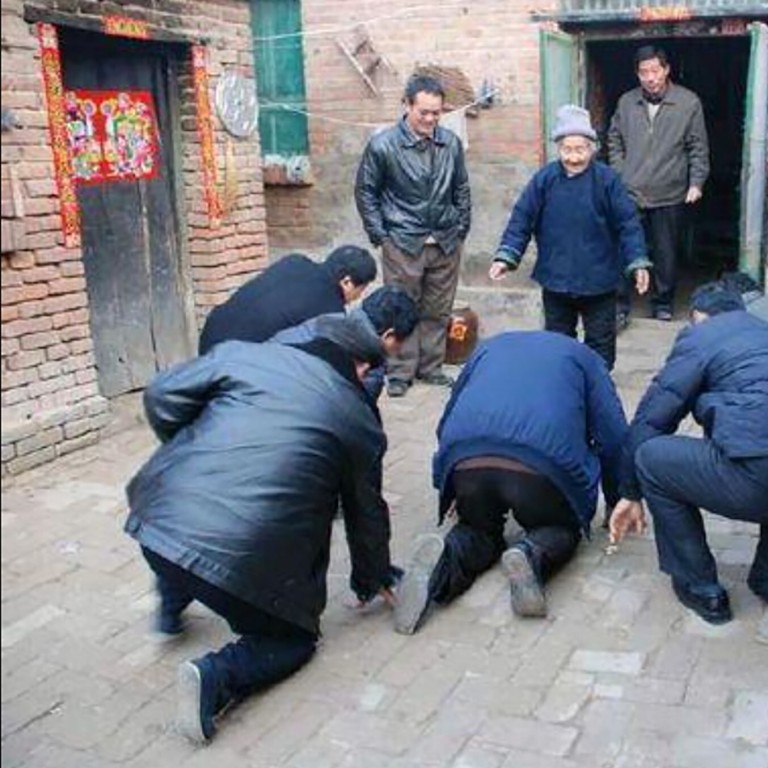
Chinese online commentator calls police after being threatened for criticising ‘backwards’ Lunar New Year custom
- Huang Zhijie says his family was bombarded with calls after he criticised the custom of kowtowing to the elders during Spring Festival
- He was hit with a fierce backlash after saying the ritual, which mainly lives on in rural areas, was a form of ‘social oppression’
A Chinese blogger has asked for police help after claiming he was being cyberbullied for criticising the traditional custom of kowtowing to the elders during Lunar New Year.
Huang Zhijie runs an influential account called You You Lu Ming (a line from an ancient poem that means roughly “the calling of the deer”) on several platforms.
On Saturday he posted on WeChat that he had been physically threatened and his family had received numerous menacing phone calls after he described the ancient practice as “backwards”.
The practice of kowtowing, which literally means “knock head”, is a traditional act of showing reverence by kneeling and prostrating oneself so that the forehead touches the ground. It has been abandoned in most parts of China, but in some rural areas, especially the eastern province of Shandong, it is still commonly observed as a new year ritual.
Traditionally, the younger members of an extended clan will mark the first day of new year by kowtowing to the village elders in the morning. Individual households also perform the ritual several times, bowing first to the ancestors, then the family’s male elders and then the females.
Huang made his comments last week as videos of the ritual started circulating online, posting on WeChat and the news platform Toutiao that doing it one’s parents was a matter of personal choice but to make people do it in groups in public was an “invisible social oppression”.
In response to some popular videos of the ritual as the Chinese national celebrated their new year in the past week, Huang warned in several posts on WeChat and news platform Toutiao that such practice is “bringing history backwards”.
To do it privately to one’s parents is a personal choice, but doing it in groups in public is an “invisible social oppression”, he said.

Huang said that he had not expected such a serious backlash over his comments and added that his family had received many threatening phone calls.
“I’m just saying what’s common sense in modern society, but they want to devour me for doing so,” he wrote.
Supporters of the practice say instead of reinforcing hierarchies, it is a way to show love and respect during the holiday season.
“Wouldn’t a new year without kowtowing be boring? We already banned firecrackers in urban areas. It was all those traditions that made new year celebrations lively, wasn’t it?,” wrote one Weibo user.
Yu Hai, professor of sociology at Fudan University, said the online spat was not a question of who was right or wrong, but it was “really worrying” when public opinion did not allow for different voices.
“We don’t judge the practice based on whether it’s new or old. As many rural people argue, it helps villagers get along with each other, to show respect to the elderly, and improve interaction among the community,” he said.
But for many city dwellers it’s something only done when they bend to others’ will, he said.
“It’s a symbol of hierarchy and power. It’s against the basic principle of equality and self-respect in modern society – so they also have good reasons to oppose it,” he added.

